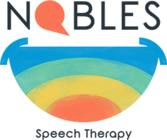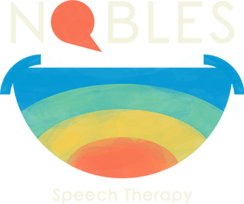We accept CareFirst BlueCross BlueShield, United Health Care, Wellpoint, Maryland Physician Care Insurance, and Kaiser Permanente.
Equip Your Child to Overcome Apraxia and Communicate Clearly
Speech Therapy for Ages 1-18
Share this page:
You can see the light of understanding in your child's eyes, but for some reason, their words aren't flowing out smoothly or at all. You may notice that they have difficulty getting started, the sounds frequently come out differently, or words are stressed in the wrong places.
At the same time, your child may not be consistently making the same mistake as they would if they had a stutter or lisp. Of course, further professional testing is needed, but if this sounds familiar, your child may have apraxia.
The good news is that apraxia is treatable, and a
pediatric speech pathologist
can help your child make great strides towards communicating clearly.
Childhood Apraxia of Speech
Children with apraxia have difficulty learning to speak and need some extra help.
In most cases, this isn't because they don't understand; the messages aren't making it from the brain to their mouth, lips, and tongue.
Apraxia isn't the same as a regular developmental delay in speech. Children with apraxia must be appropriately diagnosed because
effective treatment for this speech disorder is different from that for many other speech disorders and language delays.
Your Child Knows What They Want to Say
When a child has apraxia, they may understand things perfectly well but cannot communicate their feelings, needs, or wants. For example, your child may not be able to say many words (especially longer words), get their words out, or put sounds in the correct order.
Lost In Translation
Feeling misunderstood can cause your child to feel frustrated, scared, and upset. At the same time, apraxia can cause struggles between your child and your family as they try to understand each other. It can cause you heartache to watch your child struggle to express themselves clearly.
We Understand Your Struggles
We sympathize with how difficult it can be when your child is diagnosed or continues to deal with a speech disorder. On the bright side,
figuring out what is going on with your child also means you now have somewhere to start. In many cases, speech therapy can help.
Speech-Language Therapy is Proven to Help
As speech-language pathologists (SLP), we are trained to test your child to determine if they have a speech or language disorder. We can then set up a customized plan to help your child improve their communication skills and reach their potential.
What Is Apraxia?
The term apraxia describes a type of brain disorder that causes "motor" control issues. This disorder causes a person who understands and wants to perform a particular action to be unable to carry it out. A better way to think about how the brain and muscles work together is that the boss brain knows what it wants to happen, and the worker's muscles are ready to get to work. Unfortunately, the planning and communication between them can get mixed up, so the job isn't always done correctly.
What Is Verbal Apraxia?
Apraxia is the general term for this type of disorder; however, the word "verbal" is added when the condition affects speech. Also known as
apraxia of speech (AOS) or CAS when appearing in childhood, this disorder is a neurological disorder that affects the pathways involved in planning the movements that produce speech.
How to Diagnose Apraxia of Speech in Toddlers?
It is often difficult to judge whether a toddler may have apraxia for a few reasons. One is that it sometimes overlaps with other issues.
In addition, children often have difficulties with language when they are learning, and it can be hard to figure out if they are developing at their own pace or if there is a real problem.
This is why it is often helpful to have a professional speech-language pathologist do some testing if you suspect an issue.
Early Signs of Childhood Apraxia of Speech
Some of the early signs of the disorder may be:
- Slow speech
- Limited babbling, or variation within babbling
- Overuse of simple syllables
- Groping for the right way to position the mouth, lips, and tongue
- Inconsistent errors
- General awkwardness or clumsiness
- Difficulty with smiling, kissing, or other such expressions
Possible Apraxia Symptoms Children May Experience
CAS can cause or be related to other issues such as:
- Difficulty with fine motor skills
- Delays in language
- Problems with reading, spelling, and writing
Apraxia of Speech Causes
The exact cause of apraxia is not always known. In some cases, apraxia is caused by brain damage, a genetic disorder or syndrome, or a stroke or brain injury. However, there are two general types of apraxia:
- Acquired apraxia of speech — typically results from a brain injury; and
- Developmental apraxia of speech — begins early in life and may be genetic.
Childhood Apraxia of Speech Prognosis — What to Expect
Experts agree that speech therapy can be beneficial for children with apraxia regardless of the outcome. Factors such as age, severity, cause, and overall health play a role in how quickly and how much a child will progress.
Children with apraxia do benefit from treatment and learning ways to communicate. Some children eventually learn to speak normally or near normally, but this is not a guarantee. Even if clear speech is not achieved, most children with apraxia learn how to use other tools or different ways to communicate.
Apraxia of Speech Treatment
We work with your child to teach them how to plan the movements needed to make sounds, words, and sentences. We make sessions enjoyable for your child so they like coming to treatment and consider visits as a fun activity and not a chore.
Practice and repetition are essential when treating apraxia. Studies have shown that results are better when the child practices frequently both with their SLP and at home. We understand the importance of families in treatment and give you resources to continue practicing at home.
Treatment can be slow, so you should not expect to see quick progress. There will be progress, but these improvements will most likely happen sound by sound or word by word. For this reason, it is vital to choose a speech-language therapist that is persevering and patient. It is also essential to manage your expectations. There are no quick miracles with this type of speech disorder. However, know that children do benefit from treatment, and over time, improvements are made.
How Apraxia of Speech Therapy Works
Step 1. Schedule Initial Consultation
We'll have a brief call to discuss your concerns about your child's communications skills, developmental milestones, red flags, and other areas of assessment.
Step 2. Assessment
We evaluate your child to industry-standard speech and language development benchmarks. Based on the results, we create a step-by-step treatment plan built around your child's needs.
Step 3. Treatment
We implement the treatment plan in series of fun, 30-minute one-on-one in-person or virtual sessions with your child. You'll receive updates after each session with supplemental materials for practice and reinforcement.
Step 4. Results
You'll experience the joy of watching your child's confidence, interpersonal interactions, and communication transform as building blocks are mastered throughout the treatment plan.
Get Started Today!
Take the Next Step to Your Child Communicating More Clearly
The consultation is confidential and there is no obligation!
Can Speech Therapy Help Childhood Apraxia?
Speech therapy can help children with apraxia to learn to communicate more clearly. When children can express their thoughts, it allows them to feel more independent, brave and understood.
As a certified speech-language pathologist, Myles Nobles has the training and experience to help children with apraxia reach their full potential.
Progress is possible with apraxia, but it can be slow; lots of practice and repetition are required. Myles has the persistence and patience to see your child's treatment through.
Does Your Child Struggle to Communicate Clearly?
If your child shows signs of apraxia, schedule consultation today. The sooner a proper diagnosis is made and a treatment plan established, the sooner your child can begin communicating more clearly.
Related Topics:
You May Also Be Interested
- Exploring Prompt Therapy for Autism: Is It Right for Your Child
- PROMPT: A Parent's Guide to Hands-On Speech Therapy
- A Speech Therapy Guide for Parents With an Autistic Child
- Ten Signs Your Child Might Benefit From Therapy with a Pediatric Speech Pathologist
- 5 Signs Your Child Might Benefit from PROMPT Speech Therapy






